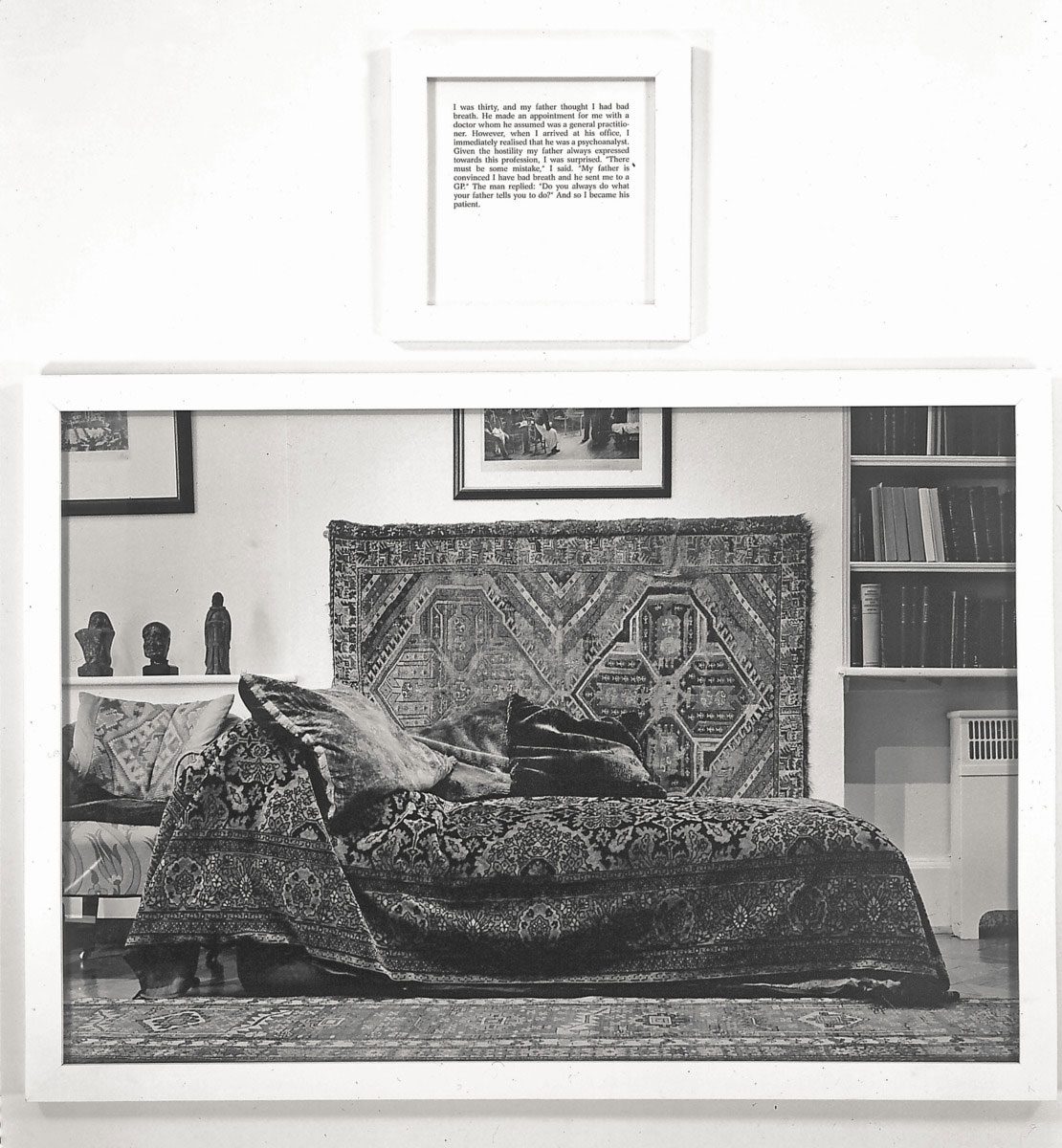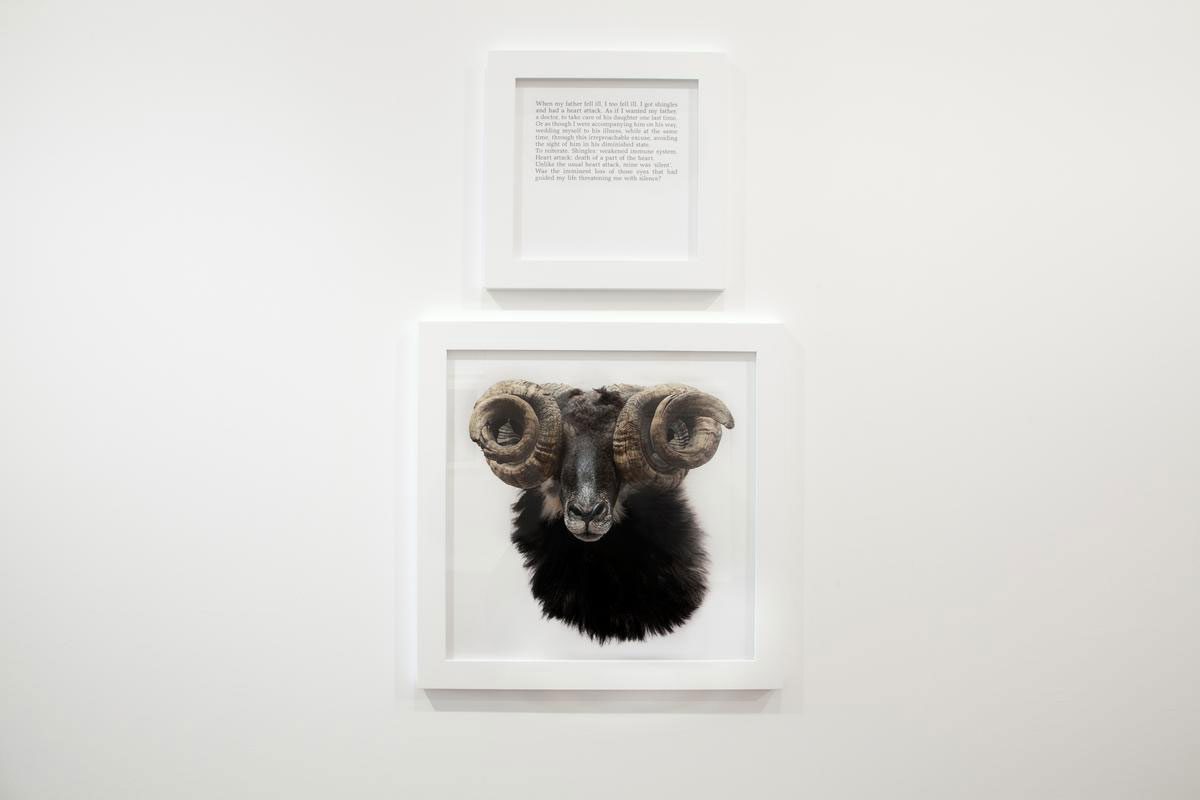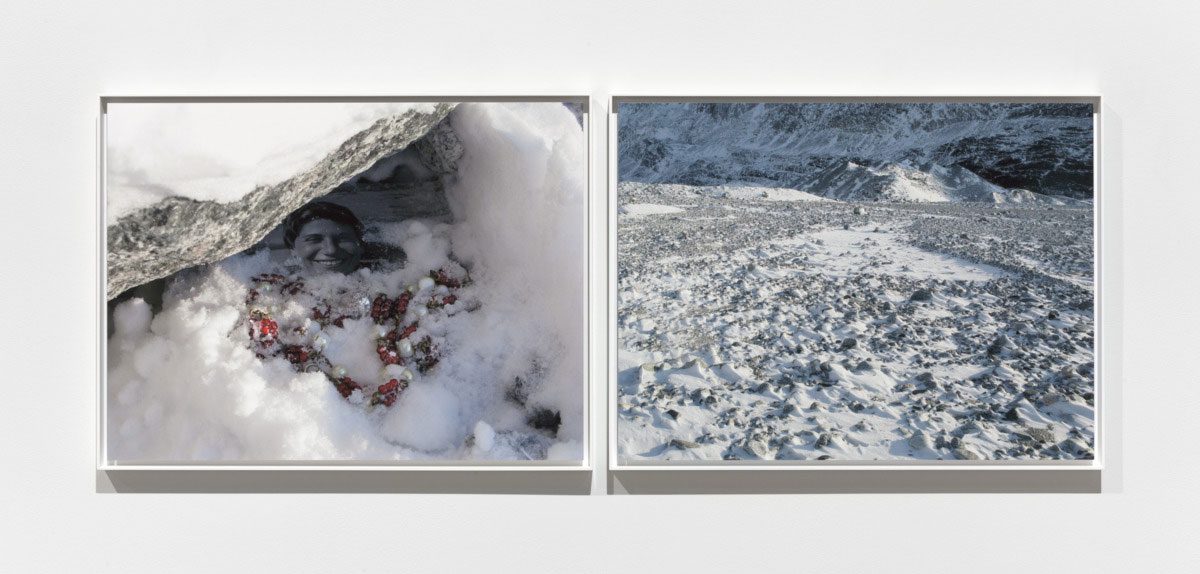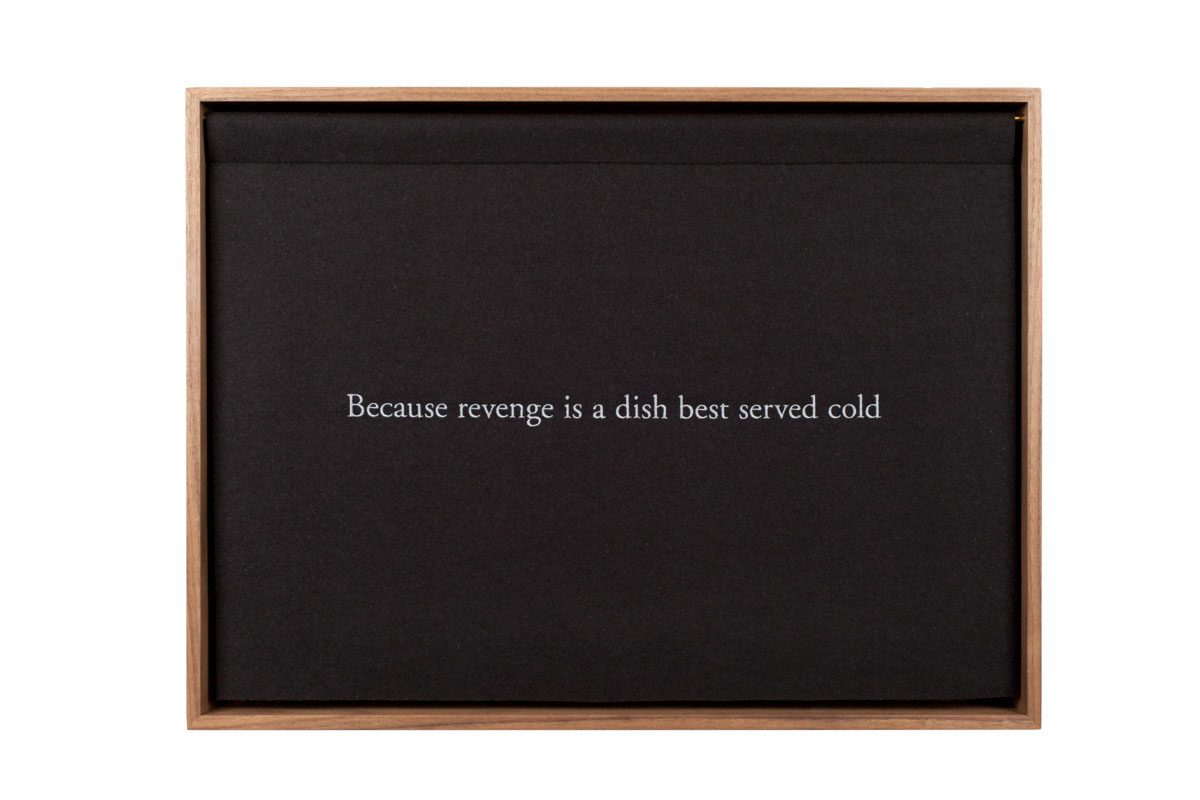PRESENTATION: Sophie Calle-Overshare
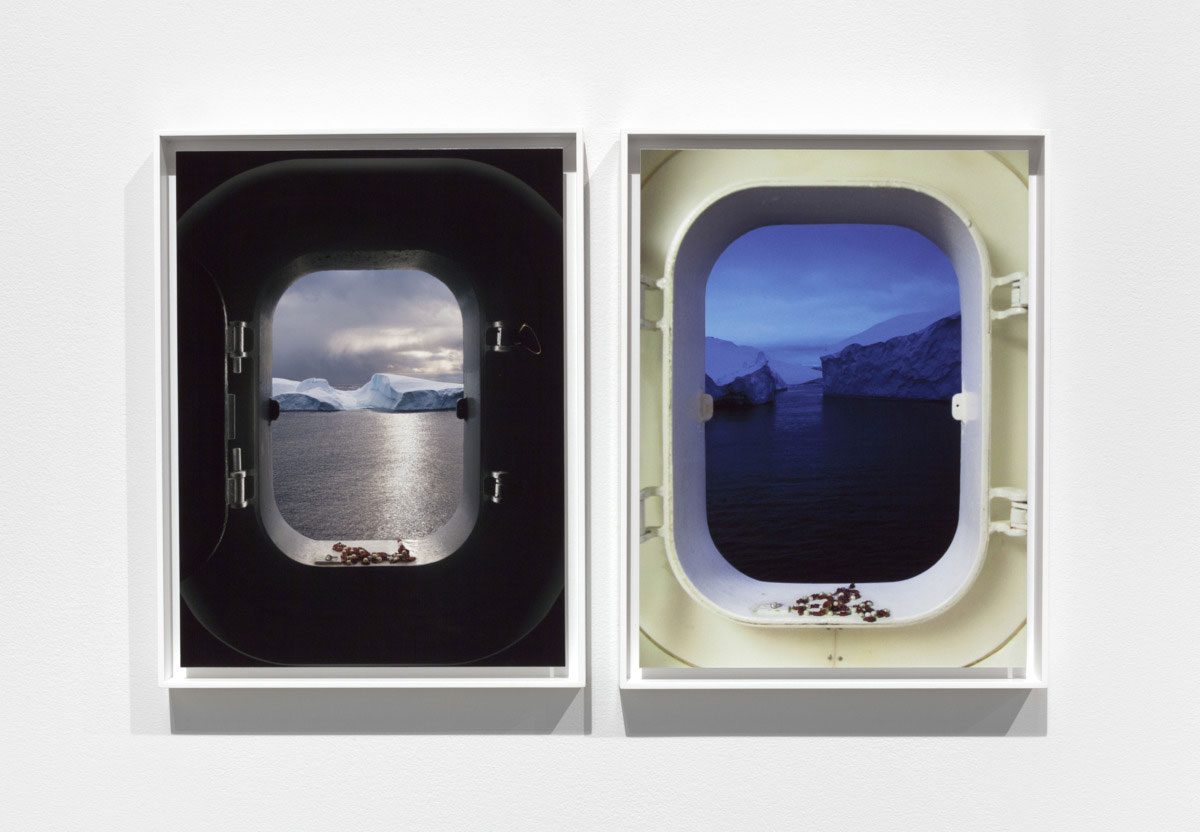 Born in 1953 in Paris, Sophie Calle is a writer, a conceptual artist, a photograph, a movie director or even detective. She might be a little of each, according to the characters that she interprets, the rituals she imagines, the parts of her life that she tells and the feelings that she shares. The artist often explores the investigations methods and her work , most of the time, consists in the association between photography and text. Sophie Calle creates her own game rules.
Born in 1953 in Paris, Sophie Calle is a writer, a conceptual artist, a photograph, a movie director or even detective. She might be a little of each, according to the characters that she interprets, the rituals she imagines, the parts of her life that she tells and the feelings that she shares. The artist often explores the investigations methods and her work , most of the time, consists in the association between photography and text. Sophie Calle creates her own game rules.
By Efi Michalarou
Photo: Walker Art Center Archive
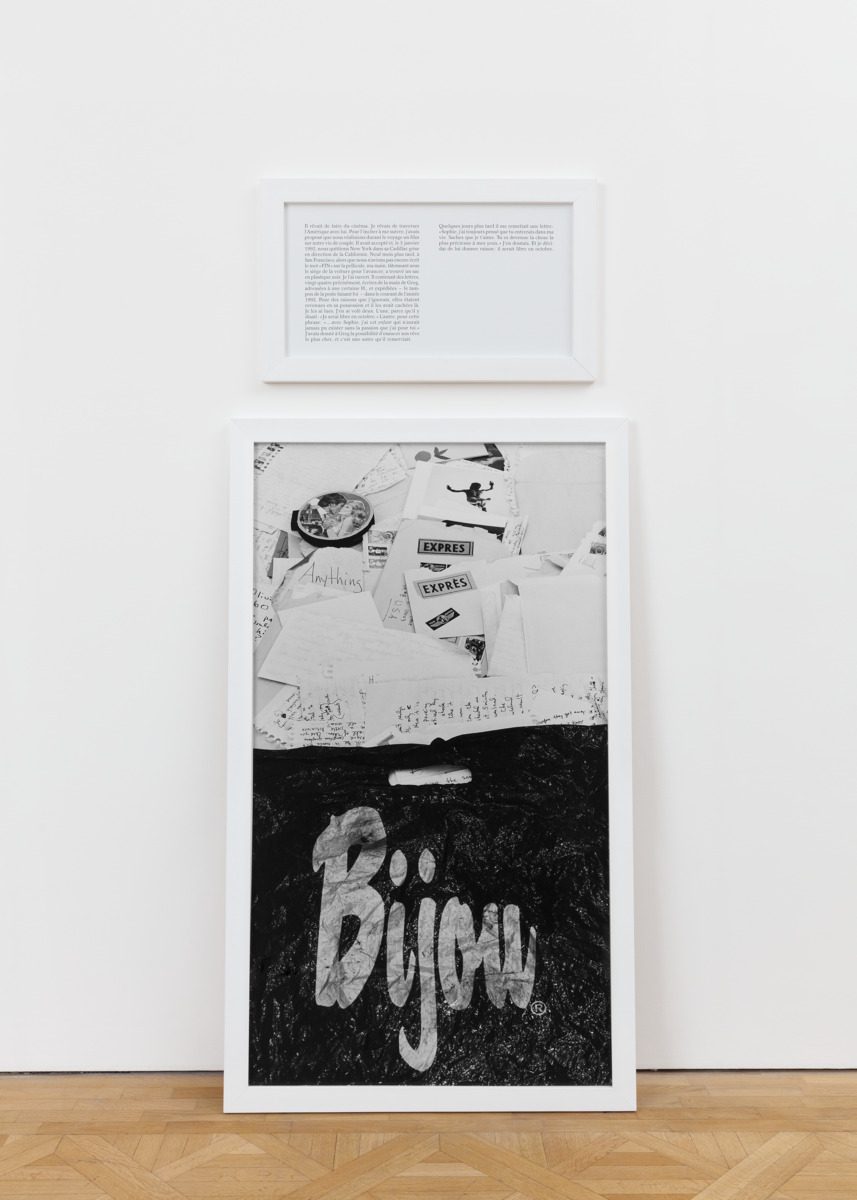
“Overshare” is the first North American exhibition to explore the full range of the Sophie Calle’s practice across the past five decades. Through examples of major bodies of work as well as lesser -known pieces, the exhibition captures the ways in which Calle’s early work anticipated the rise of social media as a space to shape and present lived experience. The exhibition features photography, text-based works, video, and installations, highlighting the artist’s efforts to probe the boundaries between public and private; truth and fiction; control and chance. Calle has been working since the late 1970s and has come to be recognized for her signature approach of pairing photographs and text. Her work also embraces video and object-based work. Throughout her practice, she uses the tactics associated with surveillance and voyeurism to examine the complex nature of human relationships, especially notions and experiences of love, trust, intimacy, and power. Inspired early on by the American photographer Duane Michals —whose photographic works her father collected and which often incorporated handwritten notes —Calle has leveraged her chosen media to document the interactions and emotional expressions of both loved ones and strangers alike. Her mining of interpersonal dynamics, and interest in questions of visibility, disappearance, and manifestations of the self, are the throughlines of “Overshare” , with the title itself offering both a strategic conceit and provocation. The exhibition unfolds across four galleries organized in different thematic sections, titled “The Spy,” “The Protagonist,” “The End,” and “The Beginning.” It includes a selection of acclaimed, iconic works, including “The Sleepers” (1979) and “Suite Vénitienne” (1980), which capture Calle’s early fascination with the real and imagined stories of people’s lives and interactions, as well as lesser- known projects such as the photographic series “Cash Machine” (1991-2003) and the related video “Unfinished” (2005). Begun in 1988 at the invitation of a Minneapolis bank to make a work for their art collection, the series revolves around ghostly black-and-white photos of people withdrawing money from an ATM outfitted with a camera. Calle never completed the commission but spent over ten years grappling with the material. In “Unfinished”, she describes her inability to finish the project. The commission, and the story behind it, offer insight into the importance of both narrative and interpersonal exchange to Calle’s practice. At the core of the exhibition are Calle’s “Autobiographies”, an ongoing series that the artist began in the late 1980s. Each two-part work includes a framed photograph alongside a framed descriptive text. In the complementary “True Stories” series, Calle pairs these stories with an object rather than a photograph. In either permutation, the short vignettes chronicle episodes from Calle’s life, ranging from incidental interactions and minor embarrassments to romantic breakups and loss. Regardless of subject, the “Autobiographies” are presented in Calle’s characteristic style: concise, sometimes improbable, and often very funny. The section dedicated to autobiography in Overshare also includes the feature-length film “Double-Blind” (1992). Produced with Calle’s then partner, filmmaker Greg Shephard, the piece captures the couple’s precarious relationship during a road trip from New York to San Francisco. Blending home movie and road movie tropes, Calle and Shephard train their cameras on each other while they traverse a largely interchangeable American landscape of motels, diners, and auto shops, with each also recording private thoughts and shared scenes on a camcorder. This film—playing with vulnerability and voyeurism—presages our cultural obsession with reality dating series like “The Bachelor”, which captures the highs and lows of dating on camera along with the private perspectives of its protagonists in solo interviews with producers. A group of autobiographical works considering the deaths of her charismatic parents, as well as her own mortality, comprise a dedicated section in the exhibition. The installation “North Pole” (2009) combines framed works and video from a trip to the Arctic in 2008. In the work, Calle pays tribute to her mother Monique, who never fulfilled her wish to visit the pole, by leaving some of her belongings in the ground. Additionally, the wall configuration |My Mother, My Father and Me” (2024) includes the “Autobiography” capturing how Calle accidentally called her deceased father’s mobile phone and received the following text message in response, “Who r u.” In the work, she wryly concludes that Bob, her father, had sent her a message. These works also all speak to an ongoing thread related to absence with the artist’s practice. The exhibition concludes with two large-scale installations, “Voir la mer” (2011) and “On the Hunt” (2020/2024), which while distinct in subject matter engage with underlying ideas of longing. The newest work in the exhibition, “On the Hun0”t features a compendium of personal ads that have been published in the classifieds section of the French hunting magazine “Le Chasseur Français” since 1895. For the installation, Calle selected two groups of approximately 15 classifieds each for various time periods, which she combined into a text panel, framed, and installed as a diptych, with texts by women and men presented next to each other. Mounted above these panels are photographs of hunting stands in the landscape and nighttime surveillance images of animals.
Photo: Sophie Calle, North Pole (detail), 2009, Courtesy of the artist and Paula Cooper Gallery, New York, © 2024 Sophie Calle / Artists Rights Society (ARS), New York / ADAGP, Paris., Photo: Steven Probert
Info: Curator: Henriette Huldisch, Walker Art Center, 725 Vineland Pl, Minneapolis, MN, USA, Duration: 26/10/2024-26/1/2025, Days & Hours: Wed & Fri-Sun 10:00-17:00, Thu 10:00-21:00, https://walkerart.org/
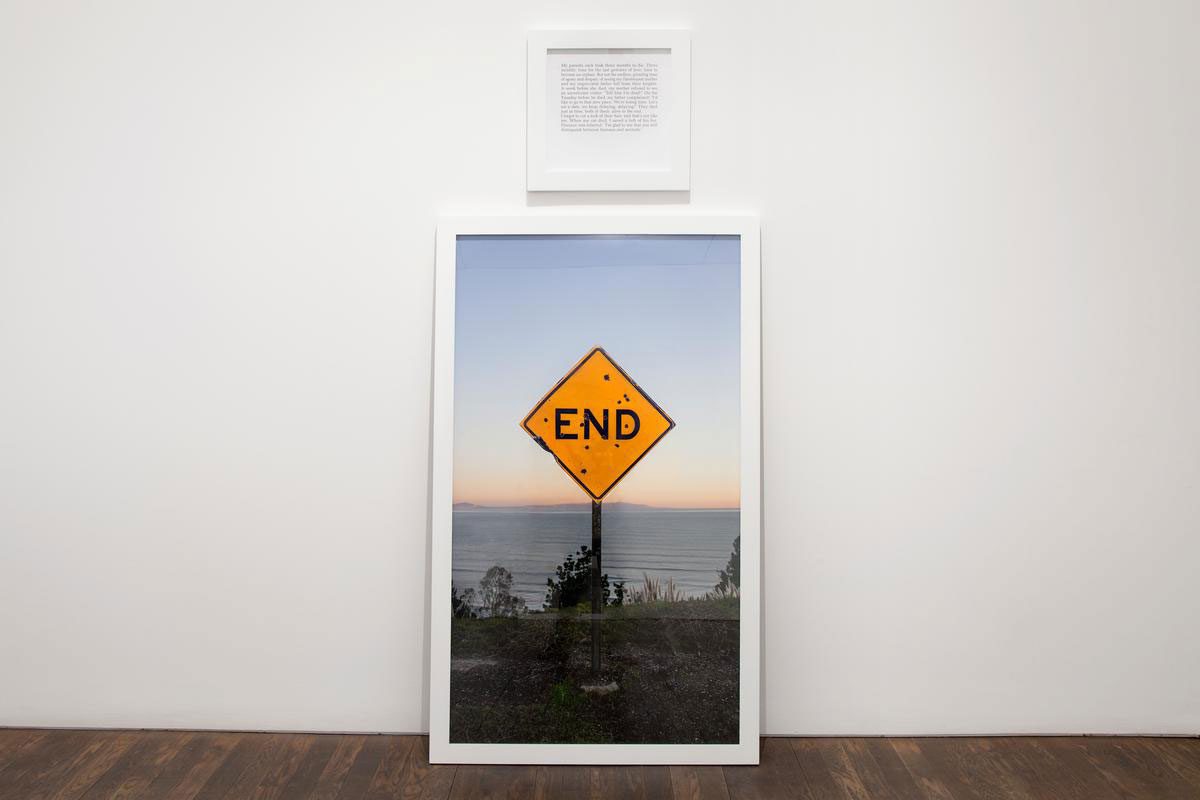

Right: Sophie Calle, In Memory of Frank Gehry’s Flowers, 2014, Eleven two-sided plexi-framed color photographs and text, arrangeable in a painted wood, grooved, wall-mounted shelf – 54 1/2 x 9 1/2 x 1 3/4 in. Glass vase by Frank Gehry 10 x 6 in. Color photograph with hand-cut edge, framed 41 1/2 x 54 1/2 x 2 in. (cm). Edition: 25. In Memory of Frank Gehry’s Flowers © 2014 Sophie Calle and Gemini G.E.L. LLC, © 2024 Sophie Calle / Artists Rights Society (ARS), New York / ADAGP, Paris
